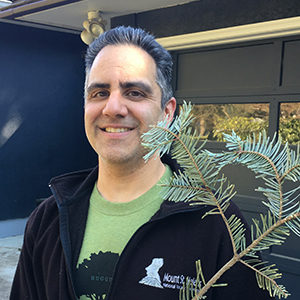A few weeks ago, a financial advisor friend of mine and I had a conversation about the terminology of our respective professions. I mentioned how a few people seemed ambivalent about calling themselves copywriters, and some had started using the term, “content strategist.”
“Copy” is a journalism term and one that evokes smoky newsrooms and clattering typewriters. And when you talk about “copywriting,” people think you’re talking about patents and intellectual property, e.g. copyrights. (I help educate my editing clients about copyrights, but that’s a different subject.) My friend mentioned there was a similar distinction being made between “socially responsible investing” and “impact investing.”
Earlier this month, the Copywriter Conclave of Portland held a lively discussion about what we call ourselves (and a necessary discussion since “copywriter” is such an important part of the Conclave’s branding). There was speculation that content strategists are different because some are responsible for managing data sets and keeping track of a company’s content libraries. Some content strategists are also responsible for creating directions for a brand or a product line. We all agreed that content strategist sounded sexier than copywriter.
I include the title content strategist on my marketing materials (including this website), but I list my role as writer first. I believe writing is a strategic activity. Many may feel writers are passive creators. Writers implement, but strategy is created by someone else.
That’s not me. It’s true that when I started writing professionally in Portland, I took direction from my bosses. But within two months, my overwhelmed direct boss was unable to give me much content direction. So I started running comps and creating product descriptions based on what the customer would like. I didn’t always get it right, but I was also the in-house editor, so I was able to adjust during the revision process. It made me a more proactive writer, and I tried to encourage strategic writing when I moved into a managerial role. The key here is that the strategy and writing were interwoven in my approach.
Today, as the owner of my own content-focused business, I’ve extended that process even further, starting with the proposal phase:
- Determine the initial “power content” (book, e-book, website, and so on)
- Create a consultation strategy based on client comfort (phone/e-mail/in-person/Skype)
- Build a deadline schedule
- Offer regular content (preferably evergreen) that solidifies their reputation or allows them to reach a goal (through blog posts and whitepapers)
Information-rich content is being touted as search-engine friendly now, but it was a survival strategy for me in the beginning of my business. I want my clients to know I’m invested in their prosperity. When prospects hire me, they get the benefit of my entire experience … strategy, editing, consulting, the whole thing.
But I am a writer first.
—
If you own a business, what sounds better to you … a writer or content strategist? If you’re a fellow content creator, what do you call yourself?








2 thoughts on “Content and Strategy”
I think you make a great point, Mahesh! I suppose copywriter sounds passive to those on the outside looking in, but it certainly doesn’t feel that way when you’re the one behind the keyboard. But because branding is such a booming business now, I get that people want folks to understand that it’s anything but passive.
“Some content strategists are also responsible for creating directions for a brand or a product line.”
This is what I tend to think of when I see a company looking for a content strategist. I feel as if there’s an implied managerial aspect to the process that may not come with the title of copywriter. Yet, as you accurately pointed out, a copywriter can just as easily be found working on the strategy, consulting, editing and creation part of the process as well.
Hi Candace! Thanks for visiting my little corner of the web again, :-) It’s my quasi-mission to try and help change the perception of writers from people who need direction to people who give it. As long as folks like you, me, and a few others I know are out there doing what we do, I think the needle will move in that direction.